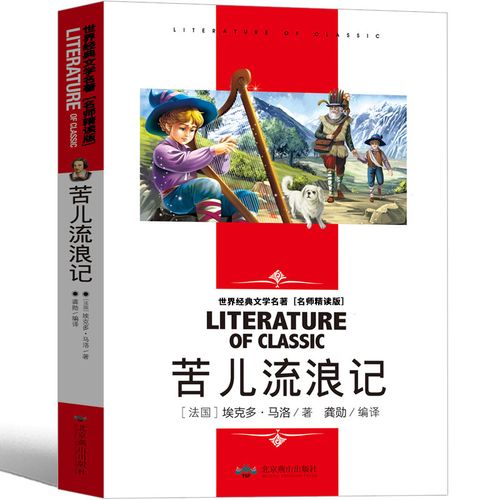备战的英文译语怎么说-预告片英文
2023年4月4日发(作者:give me a reason)
/JAFCPublishedonWeb05/25/20102010AmericanChemicalSociet民间故事会在线阅读 y
em.2010,58,7383–73887383
DOI:10.1021/jf100385m
C-TypeStarchfromHigh-AmyloseRiceResistantStarch
GranulesModifiedbyAntise蜀中九日九日登高 nseRNAInhibitionofStarc霜叶红于二月花上一句 h
BranchingEnzyme
CUNXUWEI,†,‡BINXU,FENGLINGQIN,‡HUAGUANGYU,CHONGCHEN,
XIANGLENMENG,†LIJIAZHU,†YOUPINGWANG,‡MINGHONGGU,*,†
AND
QIAOQUANLIU*,†
†KeyLaboratoriesofCropGeneticsandPhysiologyoftheJiangsuProvinceandPlant
FunctionalGenomicsoftheMinistryofEducation,‡CollegeofBioscienceandBiotechnology,and
TestingCenter,YangzhouUniversity,Yangzhou225009,China
High-amylosestarchisasourceofresistantstarch(RS)whichhasagreatbenefitonhumanhealth.
Atransgenicriceline(TRS)enrichedamyloseandRShadbeendevelopedbyantisenseRNA
study,thenativestarchgranuleswereisolatedfrom
TRSgrainsaswellasthewildtype,andtheircrystallinetypewascarefullyinvestigatedbeforeand
-amyloseTRSrice,theC-typestarch,whichmightresultfromthecom-
binationofbothA-typeandB-typestarch,wasobservedandsubsequentlyconfirmedbymultiple
physicaltechniques,includingX-raypowderdiffraction,solid-statenuclearmagneticresonance,and
er,thechangeofstarchcrystallinestructurefromC-toB-type
atacouldaddtoourunder-
standingofnotonlythepolymorphstructureofcerealstarchbutalsowhyhigh-amylosestarchismore
resistanttodigestion.
KEYWORDS:Rice(OryzasativaL.);high-amyloseresistantstarchgranule;C-typestarch;X-ray
powderdiffraction;solid-statenuclearmagneticresonance
INTRODUCTION
Starch,themostimportantreservecomponentinhigherplants,
especiallyincerealendosperm,isusuallysynthesizedasasemi-
crystallinegranulecontainingdenselypackedpolysaccharides
w,thecrystal-
linityofnativestarcheshasbeenwellstudiedandtheirpoly-
morphismhasbeenrecognizedunderX-raypowderdiffraction
(XRD)(1-3).Typically,therearethreetypesofstarchcrystal-
linityreported,knownasA-,B-,andC-type(1-3).
TheA-typestarchmainlyexistsincerealendosperm,andtheir
crystallinestructureismostlyfavoredbytheamylopectinwith
shortlateralchainsandclosedbranchingpoints(1).Thecrystal-
linestructureofB-typestarch,contrarytothatofA-type,is
usuallyformedbytheamylopectinwithlongsidechainsand
distantbranchingpointsandcanbeobservedintubercropssuch
rearelimitedreportsfortheC-typestarch,
exceptinsmooth-seededpeasandbeans(4).Usually,theC-type
example,inpeascontainingC-typestarch,starchinthecenterof
thegranuleadoptsaB-typecrystallinestructurewhilethe
peripheryiscomposedoftheA-typecrystallinestructure(4).
Normally,thenormalcerealstarchesshowA-typecrystalline
structuresasmentionedabove(1),buttheB-typecrystalline
structureisalsoobserved,especiallyinhigh-amylosecerealstar-
mple,Yanoetal.(5)foundthatseveralricemutants
withhighamylosecontent(AC,35.4%vs29.4%ofwildtype)
elineGoami2
(previouslyknownasSuweon464),containing33%ofACand
abouttwiceasmuchaswildtypeIlpumbeyo,alsopresentsa
B-typestarchstructure(6).Inmaize,theB-typestarchisalsore-
portedinthehighamylosevarieties(2),butnotallthehigh-
ceandbarleymutants
withhighamyloseareidentifiedtocontainatypicalA-typeXRD
pattern(7,8).BesidesthetypicalA-andB-types,theC-typecereal
starchesarealsopresented,amand
Taoreportedthatthecrystaltypeofmaizestarchcouldbevaried
fromA-toB-viaC-typewhenACincreased,andthetransition
occurredatabout40%(2).
Recently,wehavedevelopedseveralhigh-amylosetransgenic
ricelinesbyantisenseRNAinhibitionofthestarchbranching
enzymes(SBEs)(9,10).Thesetransgenicricegrainsarerichin
resistantstarch(RS)andhavebeenproventoshowasignificant
potentialtoimprovethelargebowelhealthinrats(11).Our
resultsfrommicrostructureandultrastructurestudiesrevealed
thatthesehigh-amylosestarchgranulesconsistofsemicompound
starch,muchdifferentfromthecompoundstarchinthestarch
granulesfromwildtyperice(9).
*,86-514-
87997217;E-mail,yzuwcx@().Phone,86-514-
87996648;E-mail,qqliu@();E-mail,gumh@
().
em.,Vol.58,No.12,2010Weietal.
Inthisstudy,thenativestarchgranuleswerefurtherisolated
fromthehigh-amylosegrainsaswellastheirwildtype,andtheir
crystallinetypewascarefullyinvestigatedbeforeandafteracid
stingly,inhigh-amyloserice,theC-typestarch
structurewaspresentedandconfirmedbymultiplephysical
techniques,includingXRD,13Ccross-polarizationmagic-angle
spinningnuclearmagneticresonance(13CCP/MASNMR),and
attenuatedtotalreflectance-Fouriertransforminfrared(ATR-
FTIR).Moreover,thechangeofstarchcrystallinityfromC-to
B-typeduringacidhydrolysiswasalsoobservedintheRS-rich
transgenicrice.
MATERIALSANDMETHODS
caricecultivarTe-qing(TQ)anditstrans-
genicline(TRS)
generatedfromTQaftertransgenicinhibitionoftwoSBEs(SBEIand
SBEIIb)throughantisenseRNAtechniqueandheldthehomozygous
transgene(9,10).TRS(inT8generation)andTQweresimultaneously
cultivatedintheexperimentfieldofYangzhouUniversity,Yangzhou,
China,in2009,andtheirmaturegrainswereusedtoisolatestarch
pea(PisumsativumL.)andpotato(Solanumtuberosum
L.)wereobtainedfromalocalnaturalfoodmarket.
starchgranuleswere
isolatedaspreviouslydescribed(9)exceptthatthesamplesandstarch
arentACwasdetermined
byusingacolorimetricmethodwithiodine-potassiumiodide(12).
d-modifiedstarchwas
preparedaccordingtothemethodofWangetal.(13)withaslightmodi-
msofisolatednativestarchweresuspendedin100mLof
tainerswereplacedinan
ovenat35Cforaperiodfrom0to20daysandgentlyshaken3timesby
he
certaintimeofhydrolysis,thesolventwascentrifuged(10min,3000g)and
thesupernatantwasusedformeasurementofthesolubilizedcarbohyd-
ratestoquantifythedegreeofhydrolysisbytheanthrone-H
2
SO
4
method(14).Theundissolvedresiduesweresubsequentlywashedthree
timesw敕勒歌北朝民歌古诗 ithddH
2
Oandtwotimeswithacetoneandthendriedat25
driedstarchesweregroundintopowdersandpassedthrougha100-mesh
overyyield(wt%)ofthestarchafteracid
hydrolysiswascalculatedbasedonthechangeofdriedstarchafterand
beforehydrolysis.
-amylase
degradedstarchgranuleswerepreparedaccordingtothemethoddesc-
ribedbyLietal.(15)ednativestarches
(50mg)weresuspendedin5mLof0.1Mphosphatesodiumbuffer(pH6.9)
uslicheniformisR-amylase(Sigma-
Aldrich)wasadded,withafinalconcentrationof0.01%(w/v).Theamy-
lolysiswascarriedoutinanovenat37hedesired
timeofhydrolysis,undissolvedresidueswereisolatedbycentrifugation
(10min,3000g),andthesupernatantwasmeasuredforsolubilizedcarbo-
iduesweredriedandtherecoveryyieldafterenzyme
hydrolysiscalculatedasabove.
lysisofisolatednativeandacidmodified
starchgranuleswascarriedoutonanXRD(D8,Bruker,Germany)
accordingtothepublishedmethod(16).Thesampleswereexposedtothe
nningregionofthediffraction
angle(2)wasfrom3to40withastepsizeof0.02andacounttimeof
specimenswerestoredinadesiccator,whereasaturated
solutionofNaClmaintainedaconstanthumidityatmosphere(relative
humidity(RH)=75%)for1weekat25Cbeforemeasurements.
-FTIRmeasurementwascarried
outaccordingtothemethod(17)ctra
wereobtainedusingaVarian7000FTIRspectrometerwithaDTGSdete-
ctorequippedwithaATRsinglereflectancecellcontainingagermanium
crystal(45incidence-angle)(PIKETechnologies,USA).Foreachmea-
surement,64scanswitha4cm
-1
resolutionwerecoaddedbeforeFourier
ctrumofwaterrecordedinthesameconditionwas
awerecorrectedbyabaselinein
theregionfrom1200to800cm
-1
beforedeconvolutionwasappliedusing
umedlineshapewasLorentzianwithahalf-width
of26cm
-1
rbance
valuesat1047,1022,and995cm
-1
wereextractedfromthespectraafter
watersubtraction,baselinecorrection,anddeconvolution.
Solid-State13CCP/-resolutionsolid-
state13CCP/MASNMRexperimentswerecarriedoutatB
0
=9.4Tona
responding13C
swerepackedina7mm
ZrO
2
rotorandspunatthemagicangle(54.7)with6kHzofspinrate.
1H-13CCP/MASspectrawererecordedwithacontacttimeof1.2msand
micalshiftswerereferencedtotetramethyl-
silane(TMS)lly,8000-12000transientswereaccumu-
specimenswerestoredinadesiccator,
whereasaturatedsolutionofNaClmaintainedaconstanthumidityatmo-
sphere(RH=75%)atmospherefor1weekat25Cbeforemeasurements.
RESULTS
dtheeffectof
enzymeoralkalinetreatmentonstarchcrystallinestructure
duringstarchisolation,weisolatedthenativestarchfrommature
ricegrainswithoutenzymeandalkalinetreatmentinwhichthe
isolatednativestarcheswereidentifiedtohavenodamageon
granules(datanotshown).InTRSrice,the
max
(maximumabso-
rptionwavelength)andbluevalueofiodine-starchcomplexwere
significantlyhigherthanthoseofwildtypeTQ,andasexpected,
theACofTRSnativestarchwasnearlytwice(58.32%vs29.98%)
asmuchasthatoftheisolatednativestarchfromwildtyperice
grains.
HighResistancetoAcidandEnzymeHydrolysisofTRSNative
1showstherecoveryyieldofnativestarchafter
em.,Vol.58,No.12,20107385
herTRSor
TQnativestarch,theresidualstarchwasgraduallydecreasedwith
thepassageofhydrolysistime,butafter20daysofacidhydro-
lysis,therecoveryyieldofTRSstarch(33.5%)wassignificantly
higherthanthat(6.9%)ofnormalTQstarch(Figure1a).The
highrecoveryofresidualstarchinTRSricewasalsoobserved
afterR-amylasehydrolysis(Figure1b).Duringthetimecourseof
hydrolysis,TQstarchwasmorereadilyhydrolyzedthanTRS
72h,onlyabout52%oftheTRSnativestarchwas
hydrolyzed,whereasnearly89%oftheTQnormalstarchwas
esultssuggestedthatTRSstarchhadamuch
higherresistancetoeitheracidorenzymehydrolysisthanTQ
starch.
TheXRDPatternofTRSNativeStarchSimilartoThatofPea
C-TypeStarch.
TheXRDpatternsofnativestarchesofTQ,TRS,
pea,RDpatterns
werecarefullycomparedwithknowndiffractionpatternsofA-,
B-,andC-typecrystallinity(1,2).Thenormalnativestarchfrom
TQricegrainshowedstrongreflectionat2about15and23
andanunresolveddoubletat17,182,whichwasverycloseto
thetypicalA-typeXRDpatterninmostordinarycerealstar-
ches(1,2).Thepotatostarchpresentedthestrongestdiffraction
peakataround172andafewsmallpeaksataround2values
of24,22,and15.Anadditionalpeakalsoappearedatabout5
2.These陈元方候袁公 spectraweretypicalcharacteristicsofB-typestarch
fromtubercrops(1,2).Thepeastarchhadbeenreportedtobea
typicalC-typecrystallinityrevealedbyXRD(1,2).Onthepea
starchXRDspectra,onlyonepeakappearedat232,whichwas
indicativeoftheA-typepattern,whilethepeakataround52
wasthecharacteristicofB-typepattern(1,2).Whencompared
withtheabovethreetypecrystallinity,theXRDpatternofTRS
-
ever,thepresenceofsomeadditionalA-typepeaksindicatedthat
Sstarchwas
oteworthythatthesca-
tteringintensitiesfor15and232diffractionpeaksdecreased,
whereasasharpreflectionpeakatanglesof202wasobserved
kof202wasatypicalamylose-lipid
complexdiffractionpeak(1,2),whichwasinagreementwiththe
resultofhighACinTRSstarch.
elopmentof
samplingdeviceslikeATR-FTIRcombinedwithproceduresfor
spectrumdeconvolutionprovidedopportunitiesforthestudyof
starchexternalregionstructure(17).Theoriginalanddeconvo-
lutedATR-FTIRspectraintheregion1200-900cm
-1
offour
dsat1045and
1022cm
-1
hadbeenlinkedwithorder/crystallineandamorphous
regionsinstarch,respectively(17).Theratioofabsorbance1045/
1022cm
-1
wasusedtoquantifythedegreeoforderinstarch
ityratiosof1045/1022and1022/995cm
-1
might
thereforebeusefulasaconvenientindexofFTIRdataincom-
parisonswithothermeasuresofstarchconformation(18).The
relativeintensitiesofFTIRbandsat1045,1022,and995cm
-1
wererecordedfromthebaselinetopeakheight,andtheratiosfor
1045/1022and1022/995werecalculatedasshowninTable1.
Onthebasisofboththespectraandcalculateddata,theATR-
FTIRcharacteristicsofTRSstarchwasmuchclosetothoseof
peaorpotatostarch,especiallyontheIRratioof1045/1022or
1022/995cm
-1
.InTRSstarchspectra,thebandat1022cm
-1
was
lesspronouncedthaninTQandpea,whichwassimilartothatin
potato(Figure3).TheseresultsalsoimpliedthatTRSstarchwas
aC-typestarch,amixtureofA-typeandB-typestarches,which
wasinqualitativeagreementwiththedatafromXRDanalysis.
id-state13C
CP/MASNMRpatternsfornativeTQandTRSstarchesare
ntialsimilaritieswereobservedinthe
onancesat61.8ppm
wasassignedtoC-6,andthelargesignalaround68-78ppmwas
ctraofnativestarches.
ooftheAbsorbances1045/1022and1022/995cm-1
for
NativeStarches
IRratio1045/1022(cm
-1
)IRratio1022/995(cm
-1
)
TQ0.691.67
TRS0.890.60
pea0.800.78
potato1.090.75
em.,Vol.58,No.12,2010Weietal.
collectivelyassociatedwithC2,C3,onanceat
81.8ppmwasassociatedwithC4site,andtheresonanceataround
theabove
peaks,theweakpeakappearedat94.3ppmcouldarisefromthe
ssignmentsoftheresonances
werebasedontheliteraturereports(19,20).
Tworemarkabledifferenceswereobservedbetweenthe13C
CP/,
theC1resonancesofTQstarchoccurredastriplets,whichwasa
typicalA-typecharacteristic(19,20).TheC1resonancesofTRS
starchalsooccurredasinconspicuoustriplets,especiallyweak
peakat101.4ppm,whichshowedthatTRSstarchwasaC-type
ond
peakat102.9ppmappearedonlyasashoulderonthedownfield
C-1resonanceinTQstarch,however,thatinTRSappearedasa
strongpeak,whichshowedthatthecontentofamylose-lipid
complexwashigherinTRSthanthatinTQ.
ChangeofCrystalTypeofTRSStarchduringAcidHydrolysis.
TheXRDpatternsofacid-modifiedTRSstarchesandtheir
ikingdifference
wasobservedforthepeakataround2valueof23amongthe
XRDspectraofTRSstarchafterdifferenttimeofacidhydrolysis.
NativeC-typestarchfromTRSgrainshowedonlyonebroad
peakat232.Thepeakbecamebroadfrom2to6daysofhydro-
lysisandthensplitintotwopeaksat22and24,whichwerethe
typicalB-typecharacteristics(1,2).Thedisappearanceofthecha-
racteristicA-typediffractionpeakandthedevelopmentoftypical
B-typediffractionpeakshowedthatthecrystaltypeofnative
TRSstarchmightchangefromtypicalC-typetoB-typeduring
acidhydrolysis.
DISCUSSION
ThecrystallinityofnativestarchcanbeclassifiedtoA-,B-,and
C-types(1,2).TheC-typestarchisusuallyacombinationofA-
andB-types,especiallyinmaize,withabout40%ofamylose(2).
Uptonow,inmostofthereportedhigh-amylosericemutants,
endospermstarchesarecharacterizedasaB-typepatternrevealed
byXRDanalysis(5,6).Inthisstudy,thestarchfromourdeve-
lopedhigh-amylosericeTRSwasdemonstratedastheC-typenot
onlybyXRDanalysisbutalsoconfirmedbythe13CCP/MAS
NMRandATR-FTIRtechniques.
13Csolid-stateNMRhasbeenemployedinexaminingthe
pectra,mostofthe
resonancescannotbedistinguishedorhavenotbeenassigned
amongtheA-,B-,andC-typestarches,buttheC-1carbon
atomshavechemicalshiftscharacteristicforeachtypestarch.
FortheA-typestarch,whichhasthreenonidenticalsugar
residues,theC-1peakregionisaclusterofthreepeaksat
∼102,101,and100ppm,B-typestarch,
whichhastwononidenticalsugarresidues,theC-1peaksignalis
aclusteroftwopeaksat∼101and100ppm,respectively.
BecauseC-typestarchhasthecharacteristicsofbothA-and
B-typecrystallinestructure,C-1spectraoftheC-typestarch
resonancesinthespectraofC-typestarchmainlydependonthe
relativeproportionsofA-orB-typecrystallinityinthesam-
ple(20).Ingeneral,theC-typestarchshowstripletsC-1spectra
iftheA-typecrystallinestructureispredominantinthesample,
andtwo-peakC-1spectraiftheB-typecrystallinestructureis
predominant(19,20).Inpresentstudy,theTRSstarchshowed
inconspicuoustripletsC-1spectra(Figure5),whichimpliedthat
TRSstarchexistedaC-typecrystallinitywithdominantA-type
crystallinestructure.
Thecrystallinepropertyofstarchcanbechangedbyacid
treatment,whichisveryhelpfultounderstandthefinestructure
ofstarchgranules(13).Inthepresentstudy,duringorafteracid
treatmentofTRSnativestarch,theXRDcharacteristicatA-type
diffractionpeakdisappearedwhilethetypicalB-typediffraction
henomenaindicatethatthecrystaltypeof
TRSstarchchangedfromtypicalC-typetoB-typeafteracid
ultwasquitedifferentfromotherreports
(13,16,21).Forexample,theacid-modifiedcornstarchesexhibit
thesamecrystallinetypeasthatofitsnativestarch(21),whilethe
crystaltypeofpeaandChines何其芳简介 eyamstarcheschangesfromC-type
toA-typeafteracidhydrolysis(13,16).Thisstructurechangeof
ourTRSstarchduringacidtreatmentmightbeduetothe
degradationofA-typecrystallinestarchfirstorfasterthanthat
ofB-typestarch.
Resistantstarchreferstotheportionofstarchand/orstarch
productsthataredifficulttodigestwhentheypassthroughthe
gastrointestinaltract(22).TheproportionofRSwillbeincreased
whenthedietstarchcarriesmoregranularstructurenaturally
resistanttodigestion(23).InourTRSgrains,thereisnotonly
highlevelofamylosebutalsoofRS(9,10).Asexpected,theTRS
starchshowedahigherresistancetoeitheracidorenzyme
hydrolysisthanthatofitswildtypestarch(Figure1).Thismight
Figure4.13CCP/MASNMRspectraofnativest意境有仙气的诗句 arches.
em.,Vol.58,No.12,20107387
beattributedtonotonlythehighamylosebutalsothespecial
viousexperiments
showedthatthestarchgranulesfromtheregularriceTQwere
organizedascompoundstarchesanddissociatedtoseparate
individualstarchesduringstarchisolation,whilestarchgranules
fromTRSwereorganizedassemicompoundstarcheswithathick
continuousbandencirclingtheentirecircumferenceofthegra-
nules(9).ThesizesofTRSsemicompoundstarchesarelarger
thanthatofTQindividualstarches,soTRSstarcheshadalower
rateofacidhydrolysisthanTQstarches,presumablyduetotheir
,highamylosestarch
wasreportedtobelesssusceptibletoacidhydrolysisthannormal
uggestedthatthehighlycompact
amorphousregionsinhighamylosestarchgranules,resulting
fromextensiveinterchainassociationsofamylosepolymers,pre-
ventedpenetrationofacidintothegranules(24).TRSstarchhad
highconcentrationofamyloseinboththehilumandencircling
band(9),whichmightpartlyexplainwhyitwashighlyresistantto
acidhydrolysis.
Itisreportedthattheamountofnativestarchhydrolysis
byamylaseisinverselyrelatedtotheamylosecontent(15).
Moreover,thedoublehelicesinstarchgranulesalways
prefertoformacrystallinestructurethatresiststoenzyme
hydrolysis(25-27).Bothcrystallineregionsanddouble
helicesthemselvescanincreasetheresistancetoamylase
obablyexplains,atleastinpart,whyhigh
amylosestarchresistsamylasedigestionmorethannative
orwaxystarcheseventhoughtheywerelesscrystalline
(25-27).Otherwise,theA-,B-andC-typesofstarchesshow
lly,
theB-orC-typestarchshowsmoreresisancetoenzyme
hydrolysisthanthatofA-type(25,28).Thismightbewhy
theTRSC-typestarchinthepresentstudyhadahighresistant
abilitytoR-amylasedigestion.
Inconclusion,thehigh-amyloseTRSstarchwasinvestigated
byusingXRD,13CCP/MASNMR,andATR-FTIRtechniques
andsubsequentlyconfirmedtobeC-typecrystallinestructure,
whichresultedfromthecombinationofbothA-typeandB-type
acidhydrolysis,thecrystaltypeofTRSstarch
atacouldaddtoour
understandingofnotonlythepolymorphstructureofricestarch,
especiallyofhighamylosestarch,butalsowhyhighamylose
starchmoreresistanttodigestion.
ABBREVIATIONSUSED
AC,amylosecontent;ATR-FTIR,attenuatedtotalreflec-
tance-Fouriertransforminfrared;13CCP/MASNMR,13C
cross-polarizationmagic-anglespinningnuclearmagneticreso-
nance;RS,resistantstarch;SBE,starchbranchingenzyme;TQ,
Te-qing(wildtypericecultivar);TRS,transgenicRSriceline;
XRD,X-raypowderdiffraction.
ACKNOWLEDGMENT
-ChengShifromKansas
StateUniversityforhelpfuldiscussions,andtothereviewersfor
valuablecommentsandcorrections.
LITERATURECITED
(1)Buleon,A.;Colomna,P.;Planchot,V.;Ball,granules:
ol.1998,23,85–
112.
(2)Cheetham,N.W.H.;Tao,ionincrystallinetypewith
amylosecontentinmaizestarchgranules:anX-raypowderdiffrac-
.1998,36,277–284.
(3)Imberty,A.;Buleon,A.;Vinh,T.;Perez,advances
/St
€
arke1991,43,375–
384.
(4)Bogracheva,T.Y.;Morris,V.J;Ring,S.G.;Hedley,
granularstructureofC-typepeastarchanditsroleingelatinization.
Biopolymers1998,45,323–332.
(5)Yano,M.;Okuno,K.;Kawakami,J.;Satoh,H.;Omura,
amylosemutantsofrice,.1985,
69,253–257.
(6)Kang,H.J.;Hwang,I.K.;Kim,K.S.;Choi,ative
structureandphysicochemicalpropertiesofIIpumbyeo,ahigh-quality
japonicarice,anditsmutant,em.2003,
51,6598–6603.
(7)Yang,C.Z.;Shu,X.L.;Zhang,L.L.;Wang,X.Y.;Zhao,H.J.;Ma,
C.X.;Wu,propertiesofmutantricehighinresistant
em.2006,晚来天欲雪小说 54,523–528.
(8)Song,Y.;Jane,terizationofbarleystarchesofwaxy,
normal,.2000,41,
365–377.
(9)Wei,C.X.;Qin,F.L.;Zhu,L.J.;Zhou,W.D.;Chen,Y.F.;Wang,
Y.P.;Gu,M.H.;Liu,tructureandultrastructureof
high-amylosericeresistantstarchgranulesmodifiedbyantisense
em.
2010,58,1224–1232.
(10)Zhu,sonstarchstructureandfunctionalpropertiesof
.D.
ouUniversity,Yangzhou,China,2009.
(11)Li,M.;Piao,J.h.;Liu,Q.Q.;Yang,softhegenetically
modifiedriceenrichedwithresistantstarchonlargebowelhealthin
.2008,30,588–591.
(12)Juliano,Sci.
Today1971,16,334–340.
(13)Wang,S.J.;Yu,J.L.;Yu,i-crystallinegrowthringsof
C-typepeastarchgranulerevealedbySEMandHR-TEMduring
.2008,74,731–739.
(14)Viles,F.J.;Silverman,inationofstarchandcellulosewith
.1949,21,950–953.
(15)Li,J.H.;Vasanthan,T.;Hoover,R.;Rossnagel,from
hull-lessbarley:-vitrosusceptibilityofwaxy,normal,andhigh-
amylosestarchestowardshydrolysisbyR-amylasesandamyloglu-
em.2004,84,621–632.
(16)Wang,S.J.;Yu,J.L.;Zhu,Q.H.;Yu,J.G.;Jin,ar
structureandallomorphpositioninC-typeChineseyamstarch
granulerevealedbySEM,13CCP/
Hydrocolloids2009,23,426–433.
(17)Sevenou,O.;Hill,S.E.;Farhat,I.A.;Mitchell,sationof
theexternalregionofthestarchgranuleasdeterminedbyinfrared
ol.2002,31,79–85.
(18)Htoon,A.;Shrestha,A.K.;Flanagan,B.M.;Lopez-Rubio,A.;
Bird,A.R.;Gilbert,E.P.;Gidley,sofprocessinghigh
amylosemaizestarchesundercontrolledconditionsonstructural
.2009,75,
236–245.
(19)Cheetham,N.W.H.;Tao,tateNMRstudiesonthe
structuralandconformationalpropertiesofnaturalmaizestarches.
.1998,36,285–292.
(20)Bogracheva,T.Y.;Wang,YL.;Hedley,ectofwater
contentontheordered/y-
mers2001,58,247–259.
(21)Wang,Y.J.;Truong,V.D.;Wang,uresandrheological
ydr.
Polym.2003,52,327–333.
(22)Nugent,.2005,
30,27–54.
(23)Rahman,S.;Bird,A.;Regina,A.;Li,Z.;Ral,J.P.;McMaugh,
S.;Topping,D.;Morell,antstarchincereals:exploiting
Sci.2007,46,251–
260.
(24)Li,J.H.;Vasanthan,T.;Rossnagel,B.;Hoover,fromhull-
lessbarley:l,rheologicalandacidhydrolysischaracter-
em.2001,74,407–415.
em.,Vol.58,No.12,2010Weietal.
(25)Gerard,C.;Colonna,P.;Buleon,A.;Pla李商隐无题诗的艺术特色 nchot,ysis
ric.2001,81,1281–
1287.
(26)Tester,R.F.;Karkalas,J.;Qi,structureanddigestibil-
oultrySci.J.2004,60,
186–195.
(27)Cooke,D.;Gidley,crystallineandmolecularorder
duringstarchgelatinization-originoftheenthalpictransition.
.1992,227,103–112.
(28)You,S.;Izydorczyk,isonofthephysicochemi-
calpropertiesofbarleystarchesafterpartialR-amylolysis
andacid/.2007,69,489–
502.
ReceivedforreviewJanuary29,dmanuscriptreceived
March22,edMay17,udywasfinancially
supportedbygrantsfromtheNationalNaturalScienceFoundationof
China(30828021,30300215),theMinistryofScienceandTechnology
(2006AA10A102,2009ZX08011-003B),theGovernmentofJiangsu
Province(BK2009186,06KJA21018),andtheChinaPostdoctoral
ScienceFoundation(2).
更多推荐
JAFC是什么意思C在线翻译读音例句








发布评论